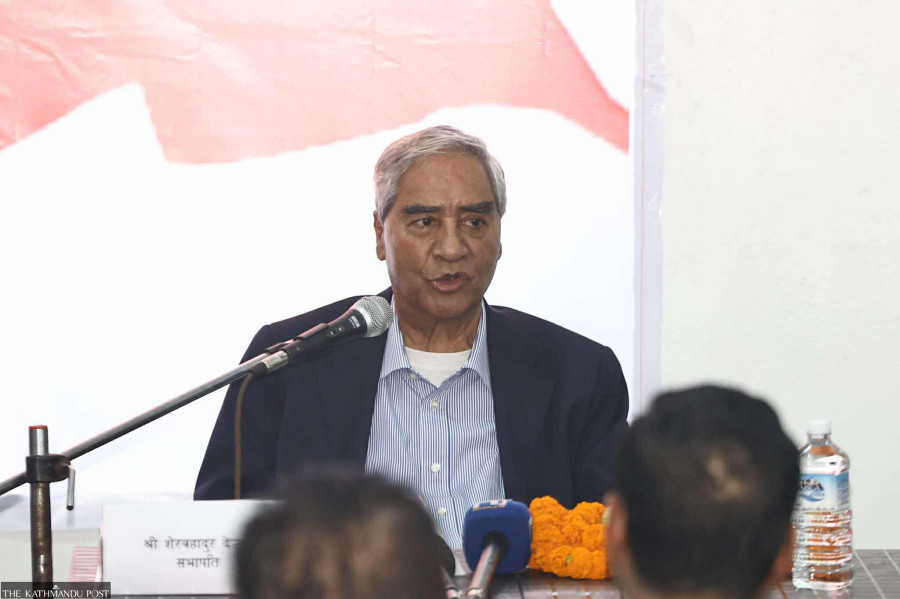Editorial
One down, two to go
Deuba’s decision to relinquish party chairmanship will put moral pressure on Oli and Dahal.
One of the central demands of the Gen Z protests—the removal of the top leaders of the three major parties—is being realised, albeit slowly. The Nepali Congress and the CPN-UML—the two largest political parties in the recently dissolved House of Representatives—are both holding their central committee meetings. These meetings are being closely watched, as they come in the wake of the Gen Z uprising that upended Nepal’s political landscape overnight. However, the atmosphere of the two meetings are markedly different. At the Congress headquarters in Sanepa, there is a whiff of change. The Nepali Congress Central Working Committee meeting is being chaired by the newly appointed Acting Party President, Purna Bahadur Khadka. This follows Congress President Sher Bahadur Deuba’s decision to step aside from the party’s executive role.
Tuesday’s meeting, apparently, was the last one to be chaired by Deuba. At 79, Deuba appears to have acknowledged the changed political reality brought about by last month’s Gen Z protests. As he nears the end of his second term in December, party rules prevent him from running for president again. Although Deuba had previously announced that he was eager to hand over the baton to a successor, he and a group of loyalists had reportedly been trying to delay the convention for up to a year and a half, citing special circumstances.
In response, dissident leaders—united against this maneuver—gathered signatures of more than 50 percent of general convention representatives, demanding that the party hold the convention without delay. Faced with internal demands for leadership change and the immense pressure sparked by the Gen Z uprising, Deuba ultimately agreed to relinquish his executive role. The youth-led protests had called for an end to corruption, leadership renewal, and sweeping reforms across political parties.
By contrast, the situation in the CPN-UML is entirely different. Party chair KP Sharma Oli, who was forced to resign as prime minister after failing to handle the protests, has shown no signs of accepting the new political reality—even after the deaths of more than 75 people. In Wednesday’s central committee meeting, Oli fiercely criticised party members calling for his resignation and mocked those urging him to change. “Why should I correct myself? I’ve made no mistakes,” he said. He challenged central committee members to remove him from leadership. Oli, who recently made a provocative statement in Gundu, the location of his new residence, last week, sharpened his attack on the Sushila Karki government. He reiterated that the UML would fight for reinstatement of the House of Representatives rather than participate in the March 5 elections.
The situation in the Maoist Centre, the third largest force in the erstwhile lower house, is not encouraging either. Party chief Pushpa Kamal Dahal tried to project himself as a leader who was positive to the demands of Gen Z by announcing his resignation as party chair. However, he continues to lead the organisation as party coordinator. Despite calls from Maoist leaders for him to appoint an acting chief, Dahal, who has led the party for the past 35 years, has refused to relinquish real control.
Deuba’s gesture is certainly too little, too late. Nonetheless, in a political climate where party leaders have set the bar depressingly low, where they literally cling to their executive chairs until they are on their deathbeds, Deuba’s gesture is nonetheless meaningful. For one, it will put pressure on Oli and Dahal to give up their party leadership. If Deuba’s move can also force them to acknowledge the drastically different political reality after the Gen Z protests, so much the better.




 9.7°C Kathmandu
9.7°C Kathmandu














